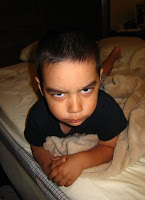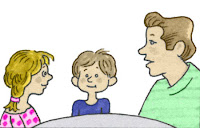Tricks To Getting Compliance From Defiant Children and Teens

Children and teens with Oppositional Defiant Disorder (ODD) talk back, refuse to do chores, use bad language, and say things like "You can't make me" nearly every day. While all children display this kind of behavior from time to time, with Oppositional Defiant Disorder children, the symptoms continue for six months or more. Thus, moms and dads feel they are always struggling with their youngster. Even more confounding, conventional discipline strategies usual fail. Children with Oppositional Defiant Disorder refuse to go on a time-out from an early age, and claim not to care about losing privileges. If their exasperated mother or father shut them in their rooms, they may destroy their own belongings or go out the window. When parents resort to spanking, the ODD child focuses on the parent’s behavior (e.g., "I'll call the police and report you for child abuse") instead of his own. Defiant kids actually believe they are equal to their parents. It'...








